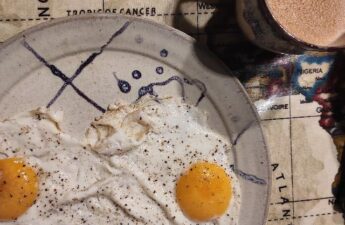You can read a lot of things about alternative sweeteners. According to some people, some will cause cancer, some will make your sugar levels spike, even induce T2 diabetes. What does science say about it?
- Aspartame
- Aspartame provides no calories and no carbs. The FDA defines a safe level as 50mg/kg of body weight. That represents 100 times less than what has been found potentially harmful in animal studies. It doesn’t make your sugar levels spike and has no impact on insulin. It may however, increase cortisol levels, which could be of concern for T2 diabetics (more research needed). Unless you have a condition called phenylkenoturia, it should be safe otherwise.
- Stevia
- Stevia is the extract stevioside from the leaves of Stevia rebaudiana Bertoni. It’s a natural sweetener. It doesn’t increase glycemia. Stevia was even found to lower postprandial insulin levels (unlike aspartame or sucrose), even increasing insulin sensitivity in rats and lowering glucose levels in humans, with no side effects, including in T1 and T2 diabetics.
- Sucralose
- Sucralose (e.g. Splenda) has been found to increase insulin levels and blood glucose levels in people with obesity (not in normal weight people), and decrease insulin sensitivity by about 18%. It has not been found however to have an effect on T2 diabetic people. More research is needed, though, as some findings seem to imply an increase of glucose levels and insulin in healthy young adults (could it be linked to age-dependent processes?).
- Saccharin
- Saccharin has been found to cause bladder cancer and other conditions such as obesity in rats. In the 70s, the FDA had decided to ban it, but public outcry kept it on the shelves. However, further research showed that that effect on rats was due to male rats having a specific bladder pH factor that predisposes them to that cancer. So it might not have the same effect on humans.
- Erythritol
- Erythritol is a naturally occurring non-nutritive sugar alcohol produced through fermenting corn. It seems to reduce glucose absorption in the intestine and has antioxydant properties (good to lower risks of heart disease). It’s recommended to stay below 50g/day. The effect on diabetes is seriously lacking at the moment outside of the rat model. A paper published in Nature this year appeared to link it to a higher risk of cardiovascular events (through clotting as far as I understand). Some of their sub-studies have potential issues (no control of diet and exercise, the patients included were already at higher risk of cardiovascular disease, some studies were in-vitro only, etc). The authors note themselves that more research is needed as they have shown association, not causation.
- Honey
- Honey is a source of sugar and carbs. It’s not suitable for diabetics as it has been shown to increase HbA1c significantly. It has however been shown to possibly help avoid complication of diabetes in animal models. Honey is slightly better than plain sugar because of its loger glycemic index (19) and it contains vitamins and minerals (which sugar doesn’t). More research is needed.
In conclusion, to me Stevia seems to be the most suitable for diabetics. Aspartame and Saccharin are probably ok too but have been linked to more side effects. Honey and sucralose have been linked to adverse effects for diabetics.
What is important to note however is that many foods that are labeled sugar-free and contain artificial sweeteners might contain other ingredients that will make your glycemia spike (e.g. wheat or even sugar).
It is also important to note that the simple ingestion of sweet-tasting substances has been shown to have an impact on insulin secretion. It wasn’t the purpose of this post since all sweet-tasting substances could be concerned, but it’s an interesting bit of information.



